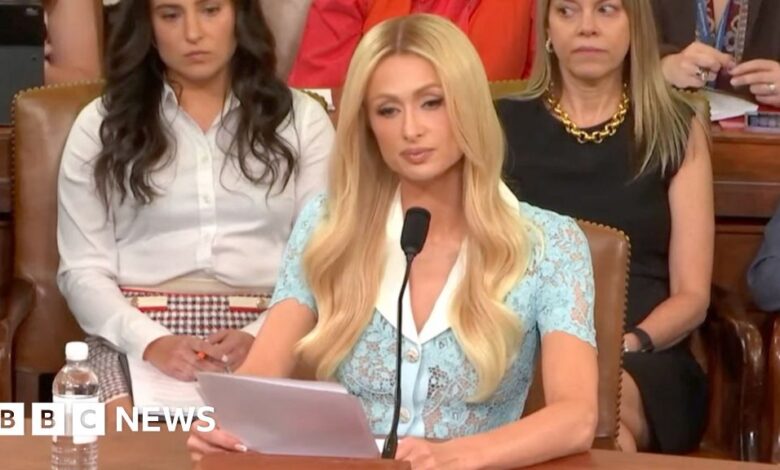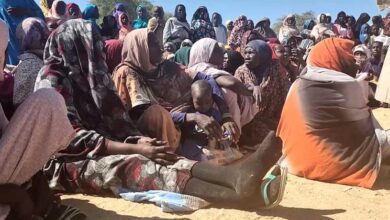Paris Hilton testified before the US Congress about childhood abuse

Paris Hilton has called for changes in youth treatment facilities and described her own traumatic experience of alleged abuse before a US Congressional committee.
The American businesswoman and socialite says she was “forced to take drugs and sexually abused by staff” after being sent to a private youth facility in Utah as a teenager.
Her testimony shed light on the so-called “troubled youth industry.”
While some children are placed with relatives or foster families, others are sent to treatment centers that are essentially group homes for children – some with medical or behavioral needs complicated.
Hilton, 43, accused the multi-billion dollar industry of being more interested in making money than protecting and caring for the vulnerable children for whom it is responsible.
The former reality TV star is an outspoken advocate for children in juvenile halls as well as those in the foster care system, and has previously spoken about her own experiences through a book, documentary and interviews.
Hilton said that when she was 16, a stranger snatched her from her bed in the middle of the night. Her school grades plummeted and her parents became concerned about her behavior.
But they had “no idea” what the facility was really like and were “constantly lied to”. [to] and manipulated by staff,” Hilton told the committee.
“They just thought this would be a normal boarding school,” she said. “And when I got there, there was no therapy at all. We were constantly tormented, abused, screamed at and scolded.”
Hilton testified that all of her communications with the outside world were controlled and that someone was always there when she spoke to her parents on the phone.
“So if I said even one negative thing about this facility, they would immediately hang up on me and then I would be punished and beaten or put in solitary confinement,” she said.
Hilton said the “inhumane” treatment she endured will affect her for the rest of her life.
She is calling on US lawmakers to pass a bill called the Institutional Child Abuse Prevention Act.
It would see the troubled youth industry federally regulated so that abuse reporting systems become more transparent and accountable. There will also be national guidance on best practice in centres, so that children’s diverse needs can be recognized and respected.
ONE new report from the Department of Health and Human Services found that many U.S. states do not adequately monitor how children are treated in these facilities and do not record cases of abuse.




